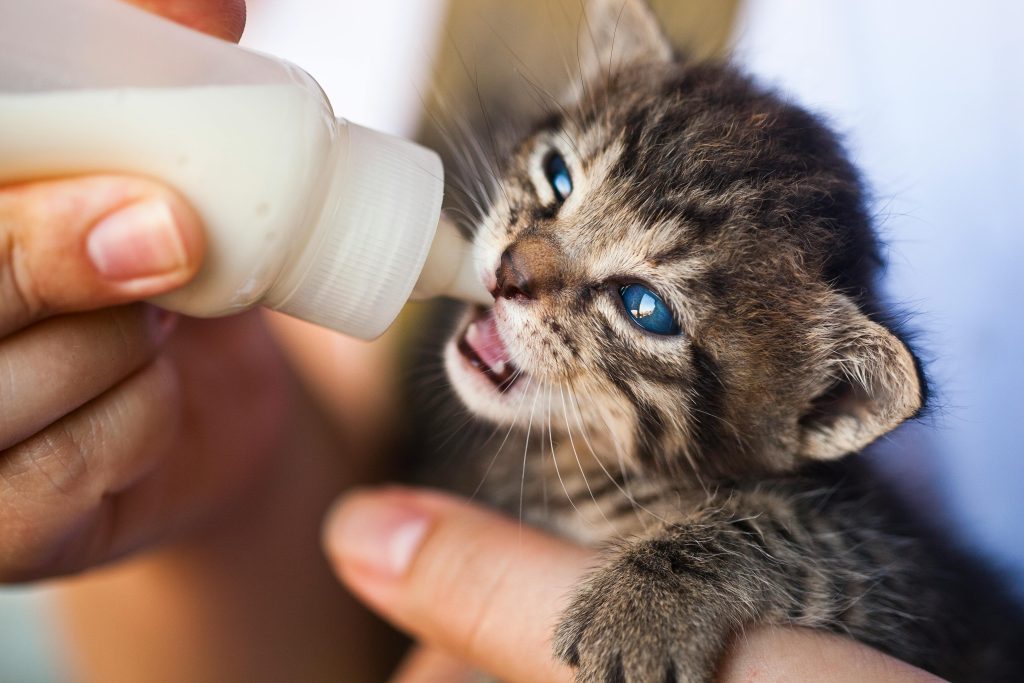Your cart is currently empty!
The Political Science Of Ending Animal Testing In The US

The landscape of American biomedical research is undergoing one of its most surprising transformations in decades. What was once a point of deep partisan division has become an unlikely point of unity. At the center of this shift stands Health Secretary Robert F. Kennedy Jr., whose push to end animal testing in drug and chemical trials has brought together a constellation of allies rarely seen on the same stage. From animal rights activists to conservative policymakers, the movement under Kennedy’s Make America Healthy Again (MAHA) initiative is rewriting the rules of science, ethics, and politics.
The proposal, supported by President Donald Trump’s administration and embraced by advocacy groups such as PETA and the White Coat Waste Project, aims to phase out animal testing in favor of human-based technologies. It is part of a broader strategy to modernize medical research, reduce costs, and align American science with evolving public values. Yet the implications run far deeper than regulatory reform. This campaign challenges the very foundations of how humans have studied disease for more than a century.
A Moral and Scientific Turning Point
Kennedy’s campaign to phase out animal testing is grounded in both scientific critique and moral conviction. For decades, researchers have relied on animals as experimental models for developing drugs and chemicals, testing their safety before human trials. Mice, rabbits, and primates have been standard fixtures in labs, viewed as essential tools of biomedical progress. But the effectiveness of this system is now under question.
According to the Food and Drug Administration, roughly 90 percent of drugs that pass animal testing ultimately fail in human trials, either because they prove unsafe or ineffective once they reach people. Kennedy and his allies argue that this statistic is not merely an inefficiency but evidence of a broken model. Animal testing, they contend, is both unreliable and ethically untenable in an era of advanced biotechnology.
In his words, “We’re spending billions on research that doesn’t deliver results. We can do better, for science, for health, and for animals.”
Kennedy’s reasoning echoes decades of criticism from scientists and ethicists who have long argued that animal biology does not adequately reflect human responses to disease. The new technologies emerging under his direction at the Department of Health and Human Services, from computer-based modeling to lab-grown organ systems, offer a path forward that might reconcile scientific rigor with compassion.
The Rise of Organoid Science

At the heart of this transformation is a technological innovation known as organoid research. Organoids are clusters of human cells grown in laboratories that mimic the structure and function of real organs, such as the brain, liver, or heart. These miniature systems allow scientists to test drugs in an environment that mirrors human biology far more closely than animal models can.
Earlier this year, the National Institutes of Health announced the creation of the Standardized Organoid Modeling (SOM) Center at the Frederick National Laboratory for Cancer Research. The 87-million-dollar project will serve as the nation’s first dedicated center for developing and standardizing these human-based models. NIH Director Jay Bhattacharya described the initiative as “a bridge between ethics and innovation,” predicting that organoids and similar technologies could eventually make animal testing obsolete.
Health Secretary Kennedy’s MAHA program is heavily investing in these developments. The new policies not only encourage researchers to adopt non-animal methods but also allow federal grants to cover the costs of rehousing animals used in experiments rather than euthanizing them. These changes reflect what Kennedy calls “ethical modernization,” a philosophy that views moral progress as inseparable from scientific advancement.
PETA Meets MAGA: A Strange Alliance

Perhaps the most fascinating dimension of Kennedy’s initiative is the political chemistry it has produced. The fight against animal testing has long been associated with the political left and with activist organizations like PETA, which for years clashed with conservative administrations. Yet under Kennedy’s guidance, the Trump administration has embraced many of the same goals that animal rights groups have championed for decades.
Emily Trunnell, PETA’s director of science advancement and outreach, praised the administration’s actions, noting that animal-based experiments are both cruel and scientifically outdated. “There’s better science when you’re using non-animal methods. There’s less animal cruelty, and there’s less waste all around,” she said in a recent interview. PETA even sent flowers to NIH Director Bhattacharya after his announcement on animal testing reform, calling it a “historic step in the right direction.”
The White Coat Waste Project, a conservative advocacy group that opposes taxpayer-funded animal experiments, has also supported the administration’s policies. Its founder, Anthony Bellotti, emphasized that 85 percent of Americans Republicans, Democrats, and independents alike oppose government spending on animal experiments. This rare bipartisan consensus underscores how Kennedy’s initiative has managed to unite ideological opposites under a shared moral cause.
As environmental historian Alfred Runte observed, “Most animal rights activists tend to be leftists. If RFK can make believers out of people that don’t want so much animal testing, I think that will certainly bring more liberals into the Republican fold.”
Reforming the FDA and Drug Pricing Landscape

The push to end animal testing is part of a broader Trump administration effort to reform biomedical regulation and reduce drug prices. The FDA, under Commissioner Marty Makary, has introduced measures to speed the approval of biosimilars cheaper, generic versions of complex biologic drugs. These reforms aim to make life-saving medicines more affordable while streamlining clinical testing.
Under new draft guidance, the FDA plans to reduce redundant testing requirements for biosimilars and allow pharmacists to substitute them freely for brand-name treatments. The agency noted that while biologic drugs account for just 5 percent of all U.S. prescriptions, they represent more than half of total drug spending. By expanding access to biosimilars and cutting unnecessary testing, the administration hopes to lower costs for consumers.
Kennedy has described the biologics market as a “hostage crisis,” arguing that outdated testing rules and regulatory barriers keep prices artificially high. These changes, including the phaseout of mandatory animal testing, form part of what he calls “a holistic modernization” of American health policy.
FDA Commissioner Makary explained that the reforms could cut biosimilar development time in half and reduce costs by as much as 50 percent. He and Kennedy both argue that this modernization is not only about economics but also about creating a system that values human-based science over antiquated traditions.
Scientific Pushback and Ethical Debate

Not everyone in the research community shares Kennedy’s enthusiasm for such rapid transformation. Many scientists caution that abandoning animal models entirely could risk safety and slow medical progress. Naomi Charalambakis, a policy expert at Americans for Medical Progress, has argued that organoids and computer simulations still lack the complexity of whole living systems. “They can’t yet replicate the immune system, metabolism, or long-term toxicity effects that we see in animals,” she warned.
Kennedy’s team acknowledges these challenges but insists that the transition will be gradual and evidence-based. The NIH strategy focuses first on areas where animal testing is least predictive, such as toxicity screening and neurological studies. Over time, as organoid and AI-based methods mature, they could replace more complex models.
Behind the scientific debate lies an economic reality. Animal research supports a vast industry of suppliers, breeders, and laboratory contractors. Shifting funding toward human-based technologies threatens established interests and will likely provoke resistance. Yet supporters of the MAHA initiative argue that public opinion and technological progress are already on their side.
A Global Movement Toward Humane Science
The United States is not alone in reconsidering its reliance on animal testing. The European Union has already approved twice as many biosimilars as the U.S. and continues to invest in human-based research models. Several European countries, including the Netherlands, have pledged to eliminate animal testing for safety studies by the end of the decade.
Kennedy’s reforms aim to help the U.S. catch up and even lead in the emerging field of humane science. The FDA Modernization Act 2.0, passed by Congress in 2022, ended the federal requirement that new drugs must be tested on animals before human trials. That legislation, the product of 40 years of lobbying by animal rights groups, laid the groundwork for the Trump administration’s current efforts.
Now, with Kennedy steering HHS and the NIH, the U.S. appears poised to turn that legislative promise into practical reality. The SOM Center’s work could establish national standards for organoid and AI-based testing, making these technologies not just ethical alternatives but regulatory norms.
Trump, Kennedy, and the Politics of Compassion
Observers have noted that President Trump’s support for the initiative reflects a calculated yet sincere shift in Republican image-making. Known more for his economic nationalism than for animal welfare, Trump has nonetheless signed multiple laws targeting cruelty in horse racing and the pet trade. Kennedy’s efforts extend that record into the realm of science, giving the administration a way to appeal to moderates, young voters, and independents without straying from its populist message.
“This is an issue everyone can agree on,” one campaign strategist told Politico. “It softens his image without changing his brand.”
Kennedy himself presents the issue as a matter of principle rather than politics. “This isn’t about left or right,” he said at the unveiling of the SOM Center. “It’s about doing what’s right and what works.”
That framing has helped transform animal testing from a fringe concern into a national conversation about how science should serve both humanity and morality.
A Future Beyond Animal Testing

Ending animal testing will not happen overnight. It will require new infrastructure, updated regulations, and cultural change within the scientific community. Yet progress is already visible. The SOM Center’s work is underway, researchers are receiving new guidance on grant eligibility, and AI-driven disease modeling is advancing rapidly.
The long-term vision is ambitious: a research ecosystem built on precision, transparency, and compassion. Kennedy envisions laboratories where drugs are tested on human-based systems rather than suffering animals, where medical breakthroughs arrive faster, and where taxpayer dollars fund innovation instead of cruelty.
In this sense, his initiative transcends traditional politics. It challenges scientists, lawmakers, and citizens to imagine what humane progress could look like in the 21st century. It also redefines the moral foundations of American science, suggesting that empathy and evidence need not be opposites but can evolve together.

A New Ethic for American Science
Robert F. Kennedy Jr.’s campaign to end animal testing has already achieved something extraordinary. It has united political adversaries, reshaped public debate, and forced the scientific establishment to reconsider its assumptions. Whether or not animal testing disappears entirely in the next decade, the movement has redefined what it means to pursue health and progress in a civilized society.
As Kennedy put it, “Our health system can’t claim to be humane while it depends on cruelty. The path to better science begins with empathy.”
If his vision succeeds, it could mark a turning point in the history of American research a moment when compassion became not a constraint on discovery but its driving force.
